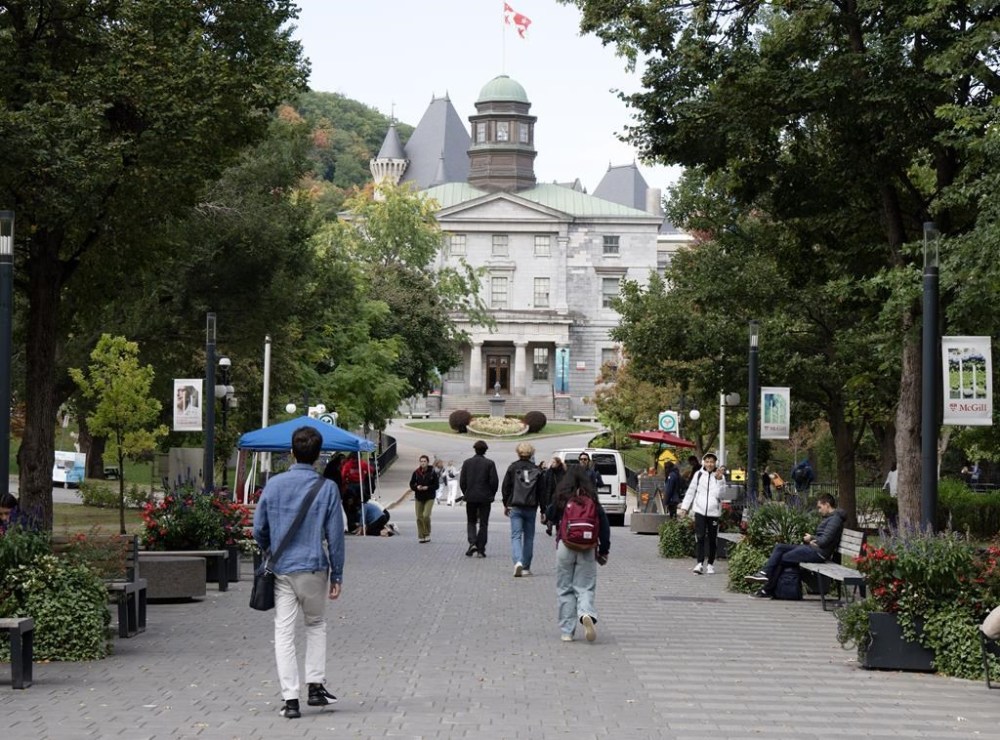Quebec’s English universities propose new tuition model for out-of-province students
Advertisement
Read this article for free:
or
Already have an account? Log in here »
To continue reading, please subscribe:
Monthly Digital Subscription
$0 for the first 4 weeks*
- Enjoy unlimited reading on winnipegfreepress.com
- Read the E-Edition, our digital replica newspaper
- Access News Break, our award-winning app
- Play interactive puzzles
*No charge for 4 weeks then price increases to the regular rate of $19.00 plus GST every four weeks. Offer available to new and qualified returning subscribers only. Cancel any time.
Monthly Digital Subscription
$4.75/week*
- Enjoy unlimited reading on winnipegfreepress.com
- Read the E-Edition, our digital replica newspaper
- Access News Break, our award-winning app
- Play interactive puzzles
*Billed as $19 plus GST every four weeks. Cancel any time.
To continue reading, please subscribe:
Add Free Press access to your Brandon Sun subscription for only an additional
$1 for the first 4 weeks*
*Your next subscription payment will increase by $1.00 and you will be charged $16.99 plus GST for four weeks. After four weeks, your payment will increase to $23.99 plus GST every four weeks.
Read unlimited articles for free today:
or
Already have an account? Log in here »
Hey there, time traveller!
This article was published 09/12/2023 (692 days ago), so information in it may no longer be current.
MONTREAL – Quebec’s English-language universities are proposing a new tuition model that they say will inflict less harm on the three institutions than the provincial government’s planned tuition hike for out-of-province students.
Quebec in October announced it would almost double university tuition for Canadian undergraduate students from outside Quebec, from $8,992 to around $17,000, beginning in fall 2024.
The English universities — Bishop’s, Concordia and McGill — have warned the new rate, which would be among the highest in the country, could lead to a drop in enrolment that would devastate their finances. The three schools welcome more out-of-province students than their French-language counterparts.

Quebec officials have cited a desire to protect the French language as one motivation for the measure.
On Saturday, the English universities outlined their proposal for alternative, tiered tuition rates for out-of-province Canadian students: $9,000 for arts, education and science programs; $14,000 for engineering programs; and $20,000 for medicine, pharmacy and law programs.
In a statement, the schools described their offer as a compromise with the Quebec government that would allow them to remain competitive with universities elsewhere in the country. The proposal comes more than a month after an initial offer that included a promise to bolster French language-learning courses received no official response from the province, the schools said.
“Continued uncertainty” about tuition rates next year has already led to a “sudden and substantial drop in enrolments,” McGill University principal Deep Saini said in the statement. McGill and Concordia on Saturday reported applications from students in other provinces are down 20 per cent and 16 per cent, respectively, compared to last year.
The three schools further say they would implement programs to improve French proficiency among undergraduates and better integrate them into Quebec society.
Quebec has also announced a plan to charge universities $20,000 for every international student they admit and reinvest those sums into the French-language university network. Bishop’s, Concordia and McGill on Saturday said they support what they called an “asymmetrical approach to government funding of certain universities,” but urged Quebec to come up with an alternative approach that would not diminish their current finances.
“We hope that the government will seriously consider our enhanced proposal, and work with universities to develop a policy that benefits all of them, and is good for our society and economy,” Concordia president Graham Carr said in the statement.
This report by The Canadian Press was first published Dec. 9, 2023.

